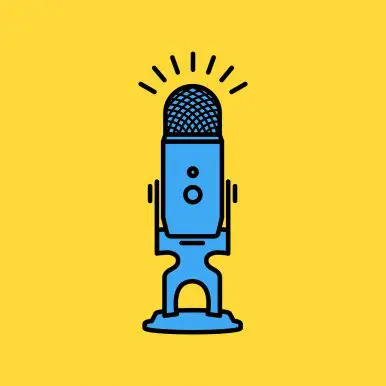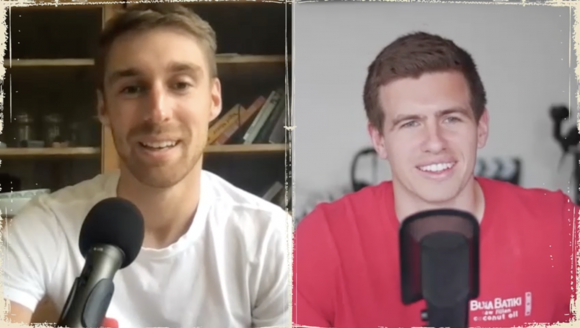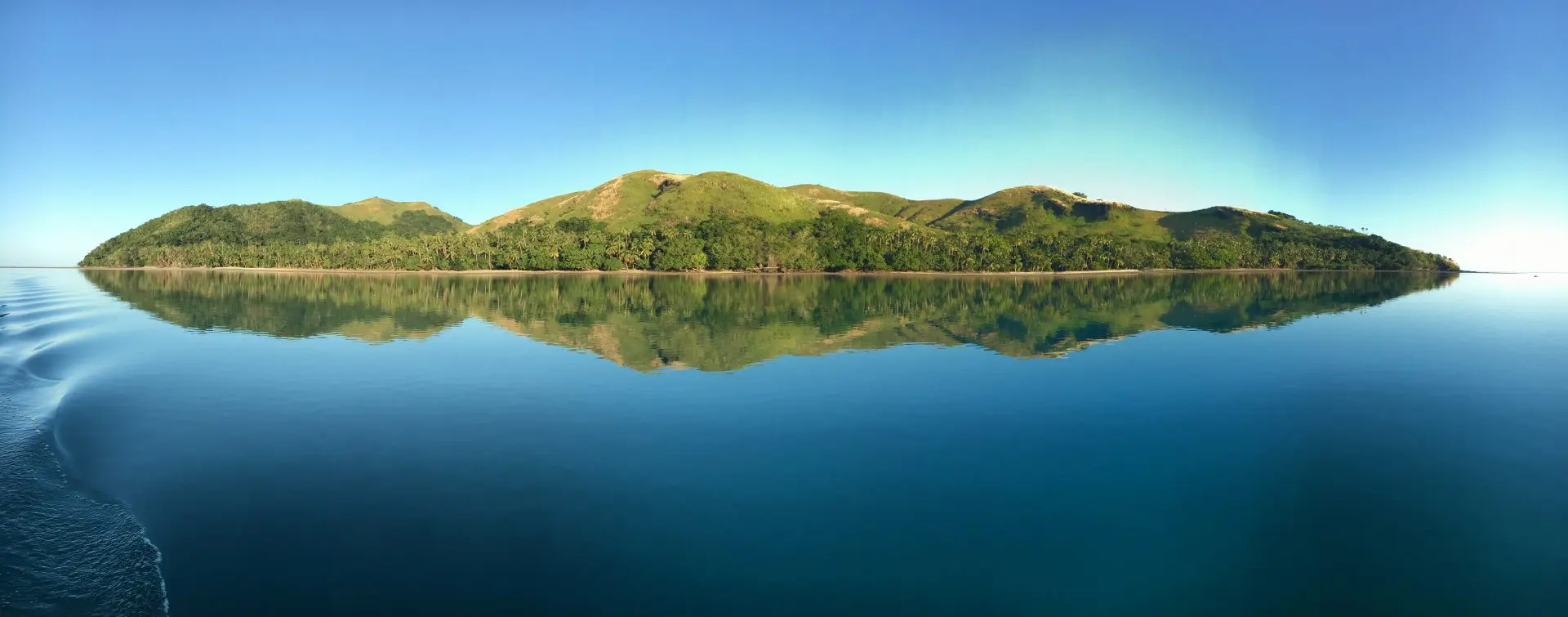The Think Pacific Podcast
The purpose of this podcast is to provide value to all listeners through opening dialogue on big topics related to international NGOs/charities. Value will be provided by the guests, who will be providing their perspective and expertise on the given subject.
This podcast is aimed for those looking to develop their knowledge in sustainable international development. From the perspective of those looking to intern/volunteer, this provides a perfect platform for Think Pacific to showcase its USP (taking an ethical and moral approach to development), which people will be able to engage with and see how TP is leading the way. The podcast topics are deliberately tough and heavy, as this will provide maximum value to the demographic interested in this sector. This does not mean that ‘lighter hearted’ conversations cannot be had from time to time too.
For university staff members, this podcast can be sent as a direct opportunity to learn about Think Pacific and see the type of thought-provoking content and value that we are providing to interns. If anyone listening to a university can add value to the podcast (e.g an expert of international development from Oxford University), they would be welcome to come on and share their thoughts too.
The Remote Internship and In-Country Programs will be communicated through ‘indirect’ messaging. Rather than titling an episode ‘how a virtual internship could improve your employability and culture IQ’, Information on TP’s approach and projects will naturally come up in conversations anyway, without the feeling of someone trying to ‘sell’ to the listener.

Key Details
Hosts: Cam & Callum, with a different guest every week
Episode Length: ∼45 mins/1 hour
Style: Pre-recorded and edited, not live
Platform: Apple Podcasts, Spotify & YouTube (video)
Season Length: Podcast could be weekly, or run for a certain number of episodes per season (e.g episodes in Season 1)
Cam and Callum discuss the purpose of the podcast and the types of conversations that will be had throughout. Cam and Callum will also introduce themselves, their backgrounds and why they think this podcast can be so important for both individuals listening and for Think Pacific as an organisation. The second half of the episode will have Harry and Simon to discuss how TP started and give background to the organisation for new listeners.
Episode 1: Can volunteering ever be truly selfless, and does that matter?
Episode 2: How donating goods can actually cause harm.
Episode 3: Is the education sector supported or abused by international NGOs?
Episode 4: How can learning Fiji’s history help shape its future?
Episode 5: Is international volunteering modern day colonialism?
Episode 6: Does rugby contribute to the development of Fiji?
Episode 7: When volunteering goes wrong…
Episode 8: Is international partnership possible?
We can break ‘volunteering’ down into two sectors – ‘immediate aid volunteering’ (for example after a natural disaster or war) and ‘development volunteers’ (for example teaching in a school or constructing a building).
Whether or not a person is acting altruistically may not matter in a situation requiring immediate aid – the important thing is that life is saved and protected. However, this episode will largely focus on ‘development volunteers’ and explore whether a person’s reasons for volunteering matters – and whether different reasons affect communities in different ways.
We’ll delve into what people’s primary motivations are – why did Cam and Callum first choose to volunteer? Why Fiji? Did our mindsets change having completed the project? What impact do we feel that we had on the community, and what impact did the community have on us? (The guest will be a pivotal part of the conversation and will bring their knowledge – but hard to document this yet without knowing who they will be)
This could lead to the question, is ‘volunteering’ actually the right word to use? Does this create a type of unnecessary hierarchy that makes local people feel inferior? (Opportunity for TP to drop the use of the word ‘volunteer’ for ‘intern’, which creates a learning culture within the team rather than one of superiority)
Overall conclusion could lead us to acknowledge some people have a naive approach to volunteering, which may not always be their own fault – i.e people want to do ‘good’ after they’ve been told they have so much privilege, but don’t know how to channel this in the correct way. Think Pacific’s role, therefore, is about nurturing the correct mindset for people setting out on their learning journeys.
Post-podcast: We’ll open up discussion in the comments section below- why did people volunteer? How did the experience alter their mindset? How did it feel to be on the receiving end of volunteering? What do others feel can be done to improve?
This episode would open up dialogue with the ‘Donate Responsibly’ twitter paid, which is partnered with Australia Aid. The concept would be to explore how giving money is more beneficial in disaster responses and ‘Donate Responsibly’ will provide examples of inappropriate donations over the years, and how these goods can often end up in landfill or cost governments significant amounts of money.
Callum can then draw on his own experiences of giving out aid packages in Koro that were well organised with the British Army, Rotary Fiji and Think Pacific. Callum can also discuss fundraising with a former Think Pacific leader (Luke) to buy chainsaws and building materials directly for people in Batiki. The conversation can then expand to explore how we were ‘fortunate’ (perhaps not the right word) to be in a position to help directly. If people don’t have the connections, it can certainly feel hard to know where and how to donate to.
Cam can draw from the guest about ways people can ensure their donations are effective. What do they recommend people do? Can governments be trusted to spend the money wisely? We can discuss the statistics about sales for fizzy drinks going through the roof whilst people struggled for water.
With Analesi and/or Temesia featuring on this episode, we will explore the work that is done by international NGOs in regards to education. If suitable, we can discuss how the Ministry of Education has put a temporary suspension on volunteer organisations – exploring reasons why this happened and what the future holds for this space. We can talk about the value of partnership and how everything that TP was doing had been led and directed by the Ministry of Education.
Analesi and Temesia will provide their insights into the situation, and also provide their thoughts on the Think Pacific interns working on projects for them.
Cam and Callum can ask big questions that can be discussed. Overall, are international NGOs positive or negative? In your experiences, have organisations approached education in the right way – working WITH people in Fiji, or have they brought their own ‘agendas’ or topics THEY think are important to teach?
Introducing the podcast that discusses Fiji’s past with both an iTaukei and Indo-Fijian historian. Starting from Fiji’s earliest stories, the historians will guide the conversation on how Fiji became the country that it is today. Cam and Callum will act very much as ‘interested students’ on the matter, asking questions that draw out important information and keep the conversation flowing. We’ll discuss colonialism and its impact on Fiji, race relations between iTaukei and Indo-Fijians, and also ask about people’s opinions on Britain today.
The podcast would begin by acknowledging the difficult nature of the topic and welcoming the guest, someone who has been on the receiving end of ‘volunteering’ and that has worked extensively in this space.
We’d define the term ‘colonialism’ and break down what it actually means and represents (dictionary definition: ‘the policy or practice of acquiring full or partial political control over another country, occupying it with settlers, and exploiting it economically’). Is it offensive to countries that experienced colonialism for this comparison to even be made? Hopefully our guest will provide some insight into this thought.
We’ll break down each part of the definition and explore the nature of what some volunteer organisations are trying to do. Are they working in partnership with local people and governments, or are they simply conducting projects that they think need to be done? Are organisations exploiting a country economically, taking advantage of paying volunteers, or is this money contributing positively to the nation? Should a volunteer organisation ever take a stance politically? Does taking a political stance mean that you are trying to acquire political control, or are they separate?
Overall conclusion would address how TP has always partnered and aligned with government initiatives to ensure that rather than imposing TP’s own goals, the projects that are put on are acting in support of the path that Fiji wishes to develop upon.
The episode with Nemani Nadolo. Prior to the episode, we’ll ask Nemani to get as much information as possible about the financial contributions that Fiji rugby players have put back into their communities. How do they support their families? Is too much pressure put onto individuals?
This podcast will be approached in a sensitive manner. Discussions will happen with an organisation that is anti-volunteering, hearing why they are taking the approach that they are. Callum will then tell the stories he has regarding organisations approaching volunteering in an inappropriate manner (without naming that organisation). From here, we can explain that TP are open to listening to everyone’s opinion, as we feel this is the way forward. We can also conclude that volunteering must be approached carefully with the goals of the communities at the forefront, and how this is ultimately TP’s mission.
The big final episode to discuss solutions to sustainable development. Firstly, we’ll look at what ‘partnership’ is, and how we see the role that partnerships can play. A lot of this podcast will be explaining the approach that Think Pacific takes – how partnering with the government, NGOs and communities and working upon their own aims is the way that we believe works best.
Season 2

Cam and Callum discuss the purpose of the podcast, as a ‘shower thought’ style idea triggering a hypothetical conversation. This would however incorport real context and relevant information to the discussion.
Episode 1: What would happen if Fijians stopped speaking English?
Episode 2: What would happen if European colonialism never happened?
Episode 3: What would happen if tourism ceased?
Episode 4: What would happen if elements of Fiji’s pre-colonial religion had a resurgence?
Episode 5: What would happen if ‘developing countries’ government budget increased x10?
Episode 6: What would happen if ‘Foreign aid’ stopped?
Episode 7: What would happen if sea levels rise to levels predicted without climate action?
Episode 8: What would happen if all of Fiji became urban?
Other ideas: What would happen if a country went completely organic?
This episode on the surface would seem like a funny thing to discuss but importantly touches on themes of identity, history, race relations and Fiji’s place in the world. Paul Geraghty would be a cool guest to get on for this given his knowledge of the history of why English is taught and spoken in Fiji and also the history of the languages of Fiji and why they relate.
The episode would have to begin with some sort of opening section that explains the history of why English is an official language. Would be fantastic to understand that despite Fiji gaining independence from the British empire in 1970, why they continue to use English as a common language. Moving on from this, it would good to start with the more humorous observations:
- What would the media look like? (Newspaper, TV, radio)
- Branding on products
- Etc
But then this would naturally develop into a discussion about how this would divide communities, particularly those of Indian descent vs Indigenous Fijians.
The effect it would have on Tourism, how useful it is that a population speaks the language of the general demographic that visits. If they stopped, the effects on unemployment but then also where industry might go instead.
Also Fiji international opportunities, job opportunities in neighbouring New Zealand and Australia.
Conclusion on languages ties to identity but also its practical uses, explanation again why Fijian legislation has grown to be how it is.
A guest for this could be an Academic in History, maybe even Anthropology to look at social development theory, perhaps an academic at USP/FNU as it’s talking about Fijian history. It’s more of a contentious topic than the first but generally tackles the question of what would have happened in its place or instead, and then what Fiji would look like if it had never been colonized or colonised by someone else.
Would have to begin with the History of the reality of colonialism in Fiji, going over main events and dates. This would then begin a coffee table conversation on what the world would look like without such empires or assertions of power. Whether it would be even possible to envision or whether someone else would have done it instead. This would lead into discussions about how Fiji would have ‘developed’ in the way it was heading without external imposition. What would its place in the world be. Is that a better alternative? Can you even have that discussion?
Could have two guests for this, somebody like Emma Cambell working in the tourism industry and somebody who doesn’t (maybe in a competitive export industry like manufacturing or large scale farming) to give balanced responses. The podcast would tackle how important tourism is to Fiji as of now but also what would happen if its workforce was redirected if it never existed.
Contextualisation would be the first stop in the conversation after some introductions. Talking about Fiji’s current situation. Could even then talk about how coronavirus had this very effect on Fiji (haulting tourism).
Any case studies to compare? How would Fiji’s future look without tourism as opposed to one relying on it heavily in the foreseeable future? Discussion could spiral into economic benefits of tourism and limitations of having 40% of GDP sourced in it.
Might be cool to get a Fijian methodist minister involved or general contacts we have who can speak for Fijian religious identity.
Begin with an exploration of some aspects of the old religion, animist beliefs and sometimes how elements of it can explain and be seen in Fijian culture. Touch on the transition to Christianity in the Indigenous population and the influx of other religions with ethnic diversity.
Would be interesting to talk about the ‘Tuka movement’ in the 70s following Fiji’s gaining of independence – the link between these old religious ideas and indigenous Fijian identity. Comparitively Christianity’s assossiations with the West and colonialism.
Would it create a divide in Fiji? What aspects would survive, which wouldn’t? What would it mean for Fijians connection to the environment?
Concept of Vanua would be a big one to touch on as well. Would it become more extreme? Implications on politics?
When the podcast proves a success, there may be sponsorship opportunities that come in from companies that work within this space. Should such a situation arise, we could ensure that sponsors align with Think Pacific’s ethical and sustainable ethos. Otherwise, we could maintain that we are sponsorship free as we don’t ever want to be limited on topics of conversation that we wish to discuss.
The above is outline for the Think Pacific podcast. Whilst concepts for ‘Season 1’ and ‘Season 2’ have been put forward, these weekly questions/topics could be varied each week. Overall, the purpose of the podcast is to open dialogue on the big topics affecting the international NGO/charity space, as well as sustainable development. The idea is that a ‘speaker series’ will be completely separate to the podcast, which could be ‘sold’ to universities or students directly (through Patreon).

